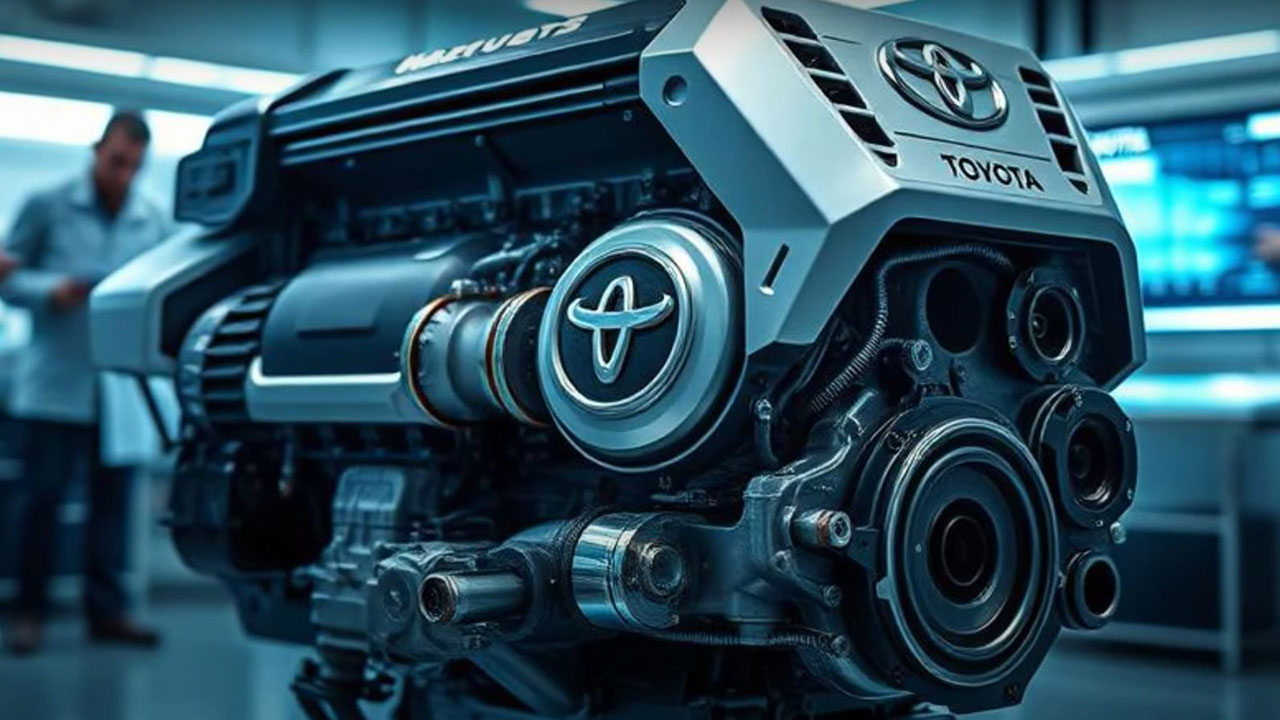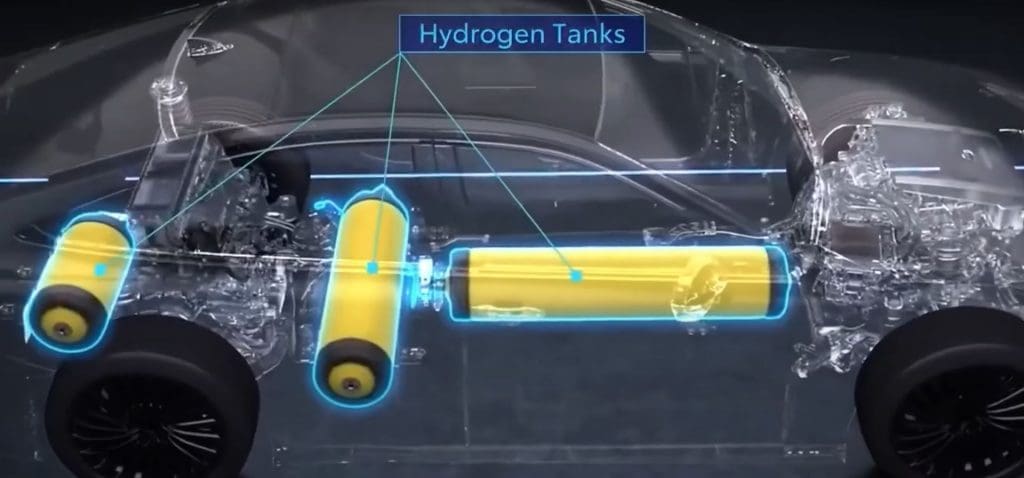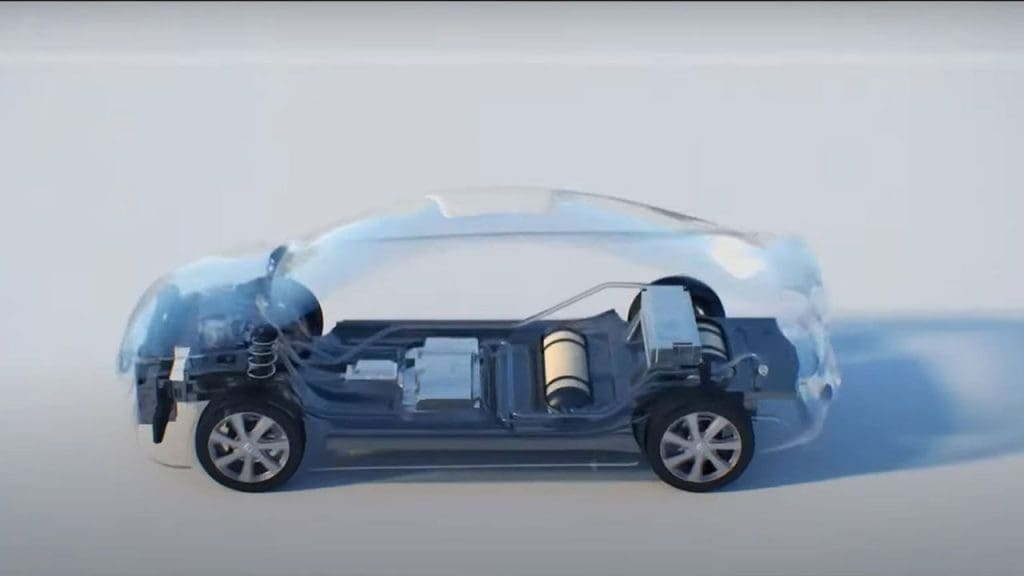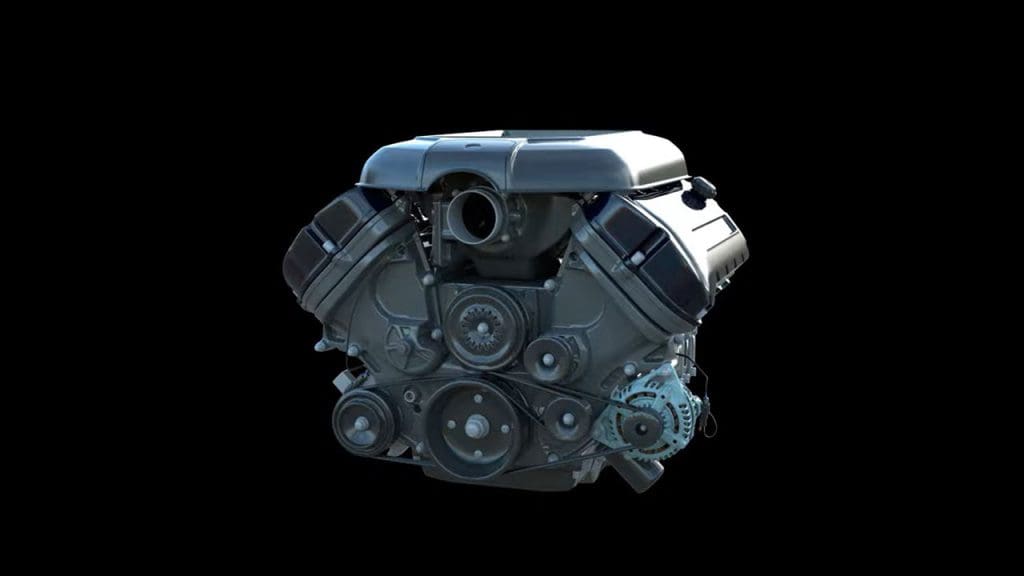
In a surprising turn of events, the automotive world has been rocked by Toyota’s announcement of a new engine technology that could challenge the dominance of electric vehicles. The CEO of Toyota has introduced a water engine, a potentially revolutionary innovation that raises questions about the future of electric cars and the broader implications for the industry. This article delves into the details of this groundbreaking announcement and what it could mean for the future of transportation.
The Announcement: A New Era of Engine Technology

Toyota’s recent announcement has sent shockwaves through the automotive industry. The CEO detailed a new water engine that promises to revolutionize how we think about vehicle propulsion. This engine, according to Toyota, utilizes water as a primary component in its operation, potentially offering an alternative to traditional fossil fuels and electric power. The details, while still emerging, suggest a significant shift in Toyota’s strategic direction, emphasizing sustainability and innovation.
The announcement has been met with a mix of excitement and skepticism across the automotive landscape. Industry insiders and tech enthusiasts have been quick to weigh in, with some praising Toyota for pushing the boundaries of what is possible, while others caution against the technological and logistical challenges such an innovation presents. Nevertheless, the announcement has positioned Toyota at the forefront of automotive innovation, potentially reshaping its market strategy and brand positioning as it embraces this new era.
Understanding the Water Engine

The concept of using water to power an engine is not entirely new, but Toyota’s approach appears to be a novel iteration. Essentially, the water engine relies on a chemical reaction involving water to produce energy, which is then used to propel the vehicle. Unlike traditional internal combustion engines that burn fuel, this engine would theoretically use water as a medium to create energy, potentially making it more efficient and environmentally friendly.
When comparing the efficiency of the water engine to traditional combustion and electric engines, several factors need to be considered. While electric vehicles (EVs) have made significant strides in efficiency and reduced emissions, the infrastructure for widespread adoption is still developing. In contrast, a water engine could offer a more immediate and scalable solution if the technology proves viable. Environmental implications are also a critical consideration; if the water engine can deliver on its promises, it could offer a greener alternative to current technologies, reducing reliance on fossil fuels and lowering carbon emissions.
Implications for Electric Vehicles

The introduction of Toyota’s water engine could represent a significant challenge to the burgeoning electric vehicle market. As it stands, EVs are rapidly gaining traction, supported by growing infrastructure investments and increasing consumer demand for sustainable transportation options. However, the water engine could disrupt this trend by offering a potentially more versatile and accessible alternative.
Electric vehicle manufacturers are likely to respond by accelerating their innovation cycles, perhaps focusing on enhancing battery technology and improving charging infrastructure to maintain their competitive edge. The current state of electric vehicle adoption, while robust, is still in its infancy compared to traditional vehicles. Should Toyota’s water engine prove successful, it could force a reevaluation of the existing automotive landscape, prompting both established automakers and newcomers to rethink their strategic roadmaps.
The Skepticism and Challenges Ahead

Despite the excitement surrounding Toyota’s announcement, skepticism abounds. Critics question the feasibility of a water-powered car, citing potential technical and logistical challenges that could hinder its development and widespread adoption. For instance, the infrastructure required to support a water engine ecosystem is not yet in place, posing a significant hurdle to overcome.
Moreover, experts in the field have expressed doubts about the viability of Toyota’s claims. Some argue that the energy required to extract usable power from water could offset any potential benefits, making it a less efficient solution than it appears. Insights from industry leaders suggest that while the water engine could indeed be revolutionary, significant research and development are needed before it can be considered a practical alternative to existing technologies. As Forbes points out, there are many hurdles to clear before this concept can reach the consumer market.
The Future of Automotive Innovation

Toyota’s announcement of the water engine is a bold step within the broader trend of automotive innovation. As automakers worldwide race to develop sustainable and efficient transportation solutions, the introduction of new technologies like the water engine could catalyze further advancements across the sector. The potential ripple effects on global energy policies and automotive regulations are profound, with governments potentially incentivizing or mandating the adoption of such technologies in pursuit of environmental goals.
Speculating on the future landscape of transportation, it’s intriguing to consider whether water engines might become mainstream. If Toyota manages to overcome the challenges associated with this technology, it could pave the way for a new class of vehicles that redefine how we think about mobility. While the road ahead is uncertain, one thing is clear: the quest for sustainable automotive solutions is far from over, and Toyota’s water engine could play a pivotal role in shaping the future of transportation.